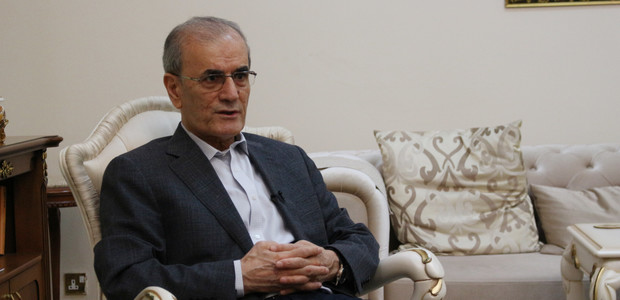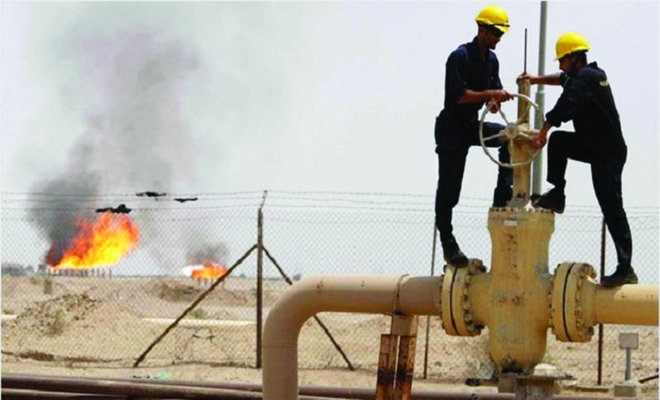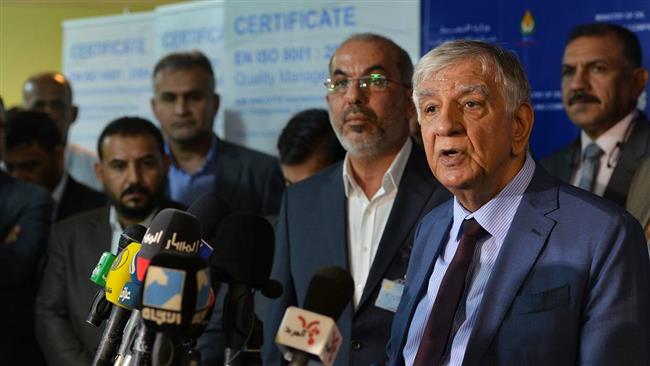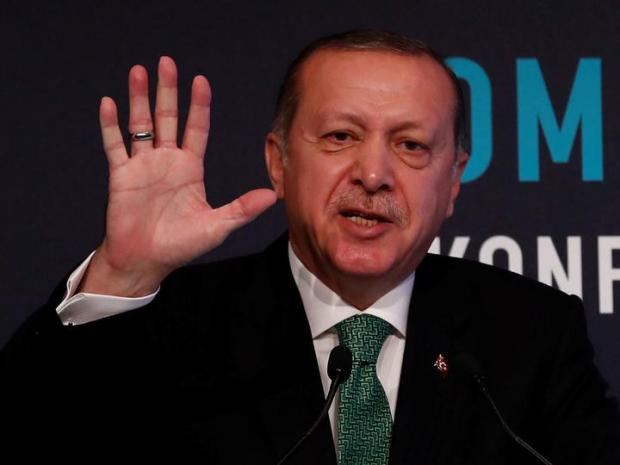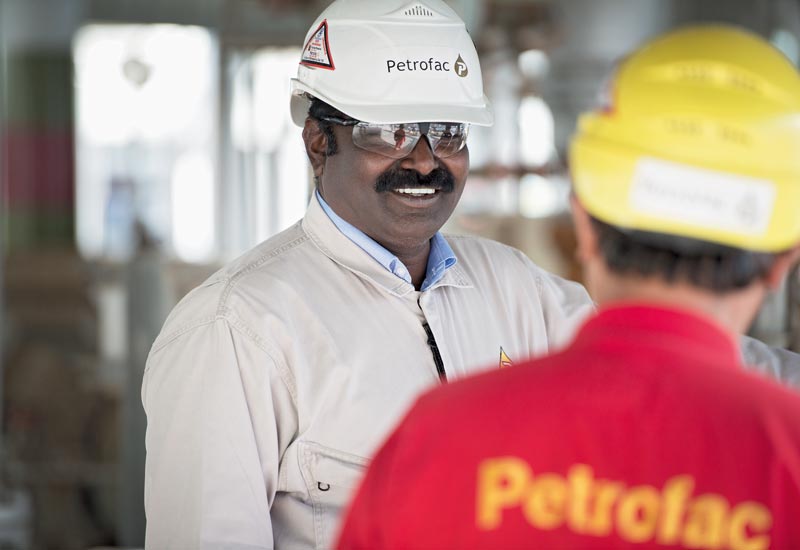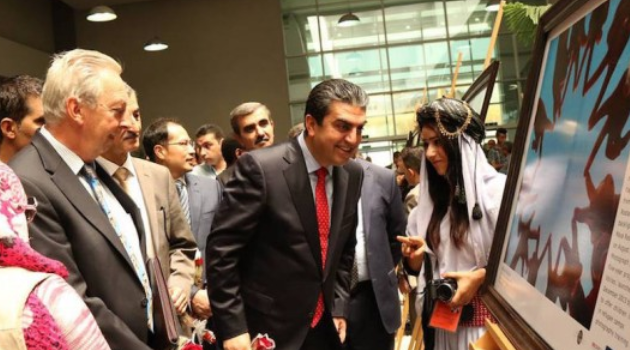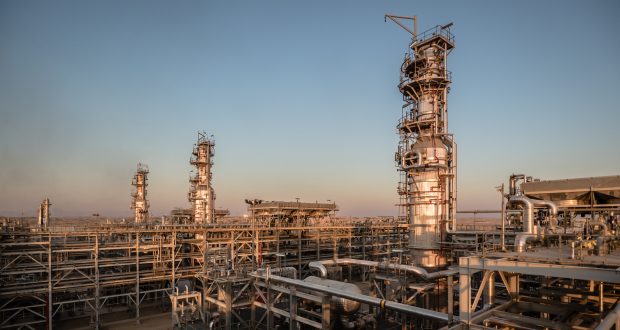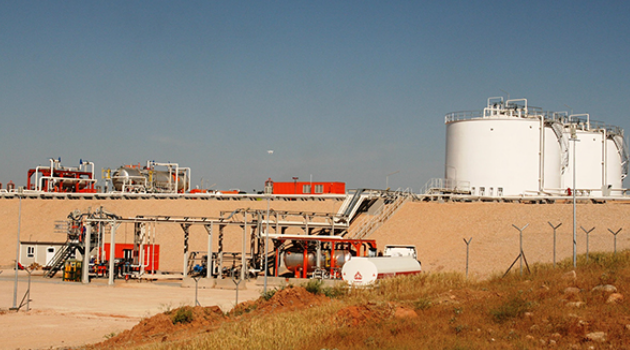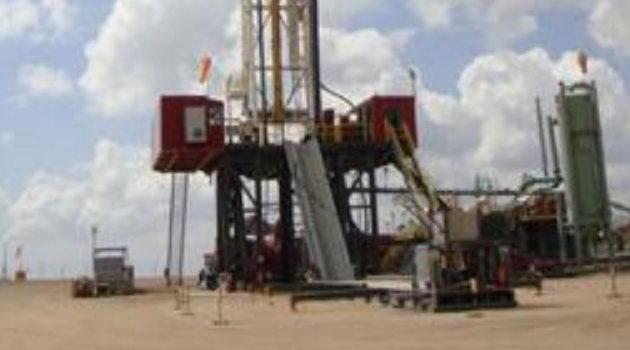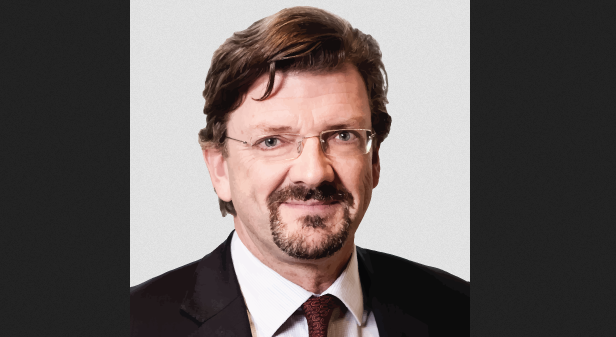This article was originally published by Niqash. Any opinions expressed are those of the author, and do not necessarily reflect the views of Iraq Business News.
Kirkuk’s Kurdish Governor: If Baghdad Blockades Us, ‘We Will Manage’
In an interview, the controversial governor of Kirkuk, Najmuddin Karim, talks about Baghdad’s attempts to fire him, military tensions and what happens if Baghdad stops sending money.
On September 14, the Iraqi parliament voted to dismiss the governor of Kirkuk from his post. The decision came after the governor, Najmuddin Karim, said that the Kirkuk area would also take part in the Kurdish referendum on independence held this week, on Monday.
The Kurdish minority in Iraq want their region to secede from the rest of Iraq and to begin to start a new nation; they already have their own government, military, and borders.
The decision on Karim’s position was made in the Iraqi parliament even though Kurdish MPs boycotted the vote. Karim rejected the dismissal as did the political party he belongs to, the Patriotic Union of Kurdistan, or PUK, and the Iraqi Kurdish government, which controls the semi-autonomous northern region.
The Kirkuk provincial council also supported the governor. However Arab and Turkmen members of the council who represent a significant proportion of Kirkuk’s population boycotted the session.
Kirkuk is one of Iraq’s most controversial “disputed areas” – that is, an area that the Iraqi government says belongs to Iraq but which the Kurdish believe should be part of their region. Although the Iraqi Kurdish military control the district, the population includes significant numbers of Arabs and Turkmen too, and this is why the city is often referred to as a potential flashpoint for ethnic conflict.
Karim spoke to NIQASH about the Kurdish referendum on independence as well as his dismissal and its ramifications for his authority in Kirkuk in the future.
NIQASH: There were a number of different options presented to the Kurdish leadership along with requests to postpone the referendum, but none of them seemed to be acceptable. Why?
Najmuddin Karim: The alternative proposals were not concrete. When the Iraqi prime minister spoke about problems, he was talking about amending the Constitution, which isn’t possible. We would only have agreed to postpone the referendum on condition that a date for Kurdish independence was set. There is no doubt that Kirkuk has a Kurdish identity and that its fate is entwined with that of the Kurdish region.
Kuwait Energy plans New Wells in Iraq
By John Lee.
Kuwait Energy has said that by focusing on its Iraqi operations, it is protected against oil price fluctuations, allowing it to sustain growth and a strong balance sheet even under volatile market conditions.
In its Financial Statement for 1st Half 2017, the company says:
“Our finances reflect the continued growth in the Company’s operations, and although global oil prices fell by around 20% in the second quarter of the year we remained profitable, a testimony to our naturally hedged Iraqi production, which continues to increase, reflected in the 47% increase in revenues – in comparison to the same period last year – and a healthy cash balance in excess of US$67.0 million …
“In Iraq, we are paid regularly in the form of assigned crude shipments. The increase in our Iraqi production is now enabling us to take larger crude liftings than before. With the additional wells coming on stream over the coming months, these shipments will be more frequent adding to our cashflow growth. We are currently loading our largest Iraqi crude shipment and expect to receive the payment before the end of October 2017.“
The company has interests in Mansuriya, Siba, and Block 9.
(Source: Kuwait Energy)
(Picture: Sara Akbar, CEO, Kuwait Energy)
Iraq to Invest in Joint Oil Projects with Iran
Iraqi Oil Minister Jabar Ali al-Luaibi [Allibi, Luiebi] (pictured) has said an agreement will soon be signed with Iran to jointly invest in two oil fields shared between the two countries.
Last month, Iraq’s Ambassador to Tehran, Rajih al-Mussawi, said his country was considering a plan to cooperate with Iran to develop the Azadegan oil field which the two sides share.
According ot PressTV, Iran discovered the Azadegan field in 1999 in what was the country’s biggest oil find in decades. It is believed to be connected with Iraq’s supergiant Majnoon oil field.
Japan’s Inpex was contracted to develop the Azadegan project, but later quit in an apparent reaction to US sanctions against Iran.
Shell is reportedly trying to quit the Majnoon project, but has also submitted its technical study plan to Iranian authorities to develop the Azadegan and Yadavaran oil fields.
(Source: PressTV)
Turkey Threatens to Invade Iraq, Cut Off Oil Pipeline
By John Lee.
Turkish President Recep Tayyip Erdoğan (pictured) has threatened to invade Iraq, and said he could cut off the oil export pipeline from Iraq to the Turkish port of Ceyhan, following the vote supporting independence in Iraqi Kurdistan.
“We have the tap,” he said. “It is done once, we close the tap.”
The pipeline typically carries between 500,000 and 600,000 barrels of crude oil per day.
In a strongly-worded speech, Erdoğan said that fighting the Iraqi Kurdish bid for independence was “a matter of survival“.
His Prime Minister, Binali Yildirim, added that Ankara could take punitive measures involving borders and air space against the Kurdistan Regional Government (KRG).
Shares in Genel Energy fell 7 percent in early trading on Tuesday, but had recovered by lunchtime; Gulf Keystone Petroleum (GKP) was down 2 percent, while Norway’s DNO was 5 percent higher.
(Sources: The Independent, Alliance News, Reuters, Yahoo!)
Petrofac Wins Iraq Contract with KOGAS
UK-based Petrofac has been awarded a Front End Engineering Design (FEED) modification contract for the KOGAS AKKAS B.V. Nasiriya Gas Treatment Plant (GTP) in southern Iraq.
Petrofac’s scope of work includes the modification and application of an existing field design to meet the needs of the Nasiriya GTP, and an estimation for the engineering, procurement and construction (EPC) costs in line with the revised design requirements.
Steve Webber, Senior Vice President, Engineering & Production Services East, said:
“This award is testament to our engineering design capabilities, as well as our deep understanding of the market and supply chain in Iraq. KOGAS is a new client for us in a core market and we look forward to further developing our relationship through the successful delivery of this scope.
“Throughout the project, we will provide a robust FEED package for the execution of the Nasiriya GTP in alignment with KOGAS’ expectations, to ensure that it can maximise the total value of the field.”
(Source: Petrofac)
Crescent Petroleum, Dana Gas support Healthcare Centre for IDPs
By Robert Cole, AMAR Foundation.
Crescent Petroleum, one of the Middle East’s oldest and largest upstream oil companies, and Dana Gas, one of the largest private sector natural gas companies in the region, have joined forces to fund the running costs of a healthcare centre and vocational training centre for displaced people in the Kurdistan Region of Iraq for the next three years, the two companies today announced.
The three-year commitment will fund the entire running costs of AMAR International Charitable Foundation’s Primary Healthcare Centre and vocational training centre in Khanke Camp, which serve the whole community, including 16,000 Yazidi residents.
The healthcare centre plays a vital role in providing healthcare to those who would otherwise be unable to access medical support. In the second quarter of 2017, the clinic saw 26,404 cases, conducting 5,411 maternal health consultations and 2,034 child consultations.
Commenting on the donation, Crescent Petroleum’s CEO Majid Jafar said:
“At Crescent Petroleum, we aim to empower local communities by not only providing energy solutions to fuel their development, but also by responding to their social and economic needs. Internally displaced people (IDPs) are among the world’s most vulnerable populations but they are often overlooked by international relief efforts, and we are committed and honoured to assist their healthcare needs in partnership with AMAR Foundation.”
The natural gas produced by the companies from the Khor Mor field supplies more than 1,750 MW of affordable electricity to the Kurdistan Region, giving schools, hospitals and other vital entities a non-disruptive water and electricity supply for millions of people.
The Duhok Health Directorate has seen the population of the region more than double over the last two and a half years due to the massive influx of IDPs from the Sinjar and Mosul regions, putting increasing pressure on healthcare access.
Patrick Allman-Ward, Dana Gas’ CEO, said:
“Our corporate social responsibility programme has been at the heart of Dana Gas’ operations since its inception in 2005. Providing financial support to those in need is not only a moral obligation, it also has a positive impact on the communities where we operate.”
AMAR’s Chairman and Founder, the British Conservative Peer, Baroness Nicholson of Winterbourne, said she was “overwhelmed” by the generosity of Dana Gas and Crescent Petroleum:
“AMAR builds, staffs and runs five state-of-the-art heath centres on an extremely low budget. The generous donation from Crescent Petroleum and Dana Gas means we can continue with the marvellous work being done in Khanke by our locally trained doctors and nurses for the next three years.”
PLEASE CLICK HERE IF YOU CAN HELP – ANY AMOUNT LARGE OR SMALL.
(Source: AMAR Foundation)
Gazprom’s Largest Ever Maritime Shipment – from Badra
Gazprom Neft Badra, operator of the Badra field, has undertaken the largest ever maritime shipment of oil for export in the company’s history, with 1.78 million barrels of hydrocarbons being despatched for the United States in the New Solution crude oil tanker.
This is, to date, the second oil consignment to the American market by Gazprom Neft Badra — recipients of the preceding 12 shipments having been European companies and refining facilities in the Asia—Pacific region.
Hydrocarbon exports from Iraq by Gazprom Neft are delivered by the State Oil Marketing Company (SOMO) and comprise the cost-recovery component of Gazprom Neft’s development of Badra field.
(Source: Gazprom Neft)
Range Energy gives Shewashan Operations Update
Range Energy Resources has announced that Gas Plus Khalakan (GPK), the sole contractor of the Khalakan PSC in the Kurdistan Region of Iraq, issued an operations update regarding the Shewashan field.
Shewashan #4:
The 4th well drilled on the Shewashan field, Shewashan #4, has been completed as a deviated producer in the Qamchuqa reservoir formation only to first extract remaining recoverable oil from this reservoir. There are future plans to recomplete on the Kometan and Shiranish reservoirs. The well was put on production at a rate of 500 bbl/d and is connected to the early production facilities.
The well completion utilized a hydrajet targeted acid stimulation through coiled tubing to enhance production from the fracture network. This is a technique that may now be applied to the other existing wells on the Shewashan field to further enhance productivity in the Qamchuqa and Kometan reservoirs. Water production is approximately 2500 bbl/d, an amount which is well within the design parameters of the new early production facilities.
Shewashan #1:
The Shewashan #1 well has been sidetracked and a new 4.5 inch liner installed. The well has now being recompleted on the Qamchuqa reservoir formation and is producing 750 bbls/day on a 24/64” choke and is currently water free. This well did not require a hydrajet targeted acid stimulation.
Shewashan #2:
The Shewashan #2 well which was previously producing 250 bbl/d from the Shiranish reservoir, is currently being sidetracked as the water isolation program conducted in Q2 2017 has resulted in reservoir damage that cannot be repaired. Production from the well is expected to be further enhanced with the stimulation techniques once a 4.5 inch liner has been installed.
ShaMaran starts Drilling at Chiya Khere
ShaMaran Petroleum has announced that drilling operations have commenced on the Chiya Khere (“CK-7”) appraisal and development well in the Atrush Block in the Kurdistan Region of Iraq.
CK-7 is located in the central area of the Atrush Block approximately 3 kilometres east of the Atrush 2 producing well and 3.5 kilometres west of the Atrush 3 appraisal well.
The main objectives of the well are to appraise the commercial potential of the Mus formation, to help reduce the uncertainty in the location of the medium to heavy oil transition zone and to serve as a further producing well.
The well will be drilled with the EDC Romfor 25 drilling rig (pictured) and is expected to take approximately 52 days. Planned total vertical depth for the well is approximately 1,575 metres.
(Source: ShaMaran)
GKP Shares Down on Half-Year Results
Shares in Gulf Keystone Petroleum (GKP) were trading down 3 percent this morning following the announcement of its results for the half year ended 30 June 2017.
Reuters quotes analysts at Cenkos Securities as saying that further clarity on payment is required before GKP can commit to proper capital expenditure.
Highlights to 30 June 2017 and post reporting period
Operational
- Gulf Keystone’s operations in the Kurdistan Region remained safe and secure throughout H1 2017 with plant uptime at PF-1 and PF-2 of over 99% with no lost-time incidents.
- Shaikan achieved average daily production of 36,664 bopd.
- Cumulative production from Shaikan has now exceeded 40 million barrels.
- In March 2017, Shaikan-8 (“SH-8”) was brought back on-stream.
- In April 2017, ERC Equipoise verified remaining gross Shaikan 2P reserves of 615 MMstb, as at 31 December 2016.
- With gross production of c.35,350 bopd in Q3 2017 so far, gross production guidance for 2017 remains at 32,000-38,000 bopd.
- Operational strategy for investment into Shaikan has been matured throughout 2017.
Financial
- Cash flow positive through H1 2017.
- The Group has continued to receive regular payments from the Ministry of Natural Resources (“the MNR”) of $15 million gross ($12 million net to GKP) with cash receipts of $84 million net to GKP year to date.
- Continued cost control with gross operating costs per barrel of $3/bbl (H1 2016:$4/bbl).
- Profit after tax of $0.7 million (H1 2016 (as restated): loss after tax of $232.6 million).
- As at 30 June 2017, the Group estimates an unrecognised revenue receivable of $33 million net to GKP with regards to unpaid export sales (December 2016: $25 million) and $76 million net to GKP for the past costs associated with the Shaikan Government Participation Option (December 2016: $71 million).
- Cash balance at 30 June 2017 of $118.8 million against $100 million debt principal.
- Cash balance at 18 September of $133.8 million.
- April 2017, decision taken to pay Reinstated Notes coupon of $5.1 million at 10% interest rate. The decision regarding the October 2017 coupon will be communicated to the market in due course.
Outlook
- The Company is progressing in its ongoing discussions with the MNR regarding commercial and contractual conditions, in particular those around regular payments conforming to the Shaikan Production Sharing Contract (“PSC”) and crude marketing arrangements.
- GKP is preparing to make further investments to maintain plateau production at the nameplate capacity of 40,000 bopd with a view to increasing to 55,000 bopd, and beyond, subject to MOL and MNR approvals, a regular payment cycle from the MNR and a commercially acceptable investment environment.
Jón Ferrier (pictured), Gulf Keystone’s Chief Executive Officer, said:
“The first half of the year was a period of solid operational delivery, which has seen the Shaikan field continue to perform in line with expectations.
“The Company continues its dialogue with the MNR with the objective of achieving contractual and commercial clarity. Whilst continuing to maintain a rigorous and disciplined approach to its cost base, Gulf Keystone remains cash flow positive and well placed to continue to invest in increasing production from Shaikan.”
(Sources: Gulf Keystone Petroleum, Reuters, Yahoo!)

